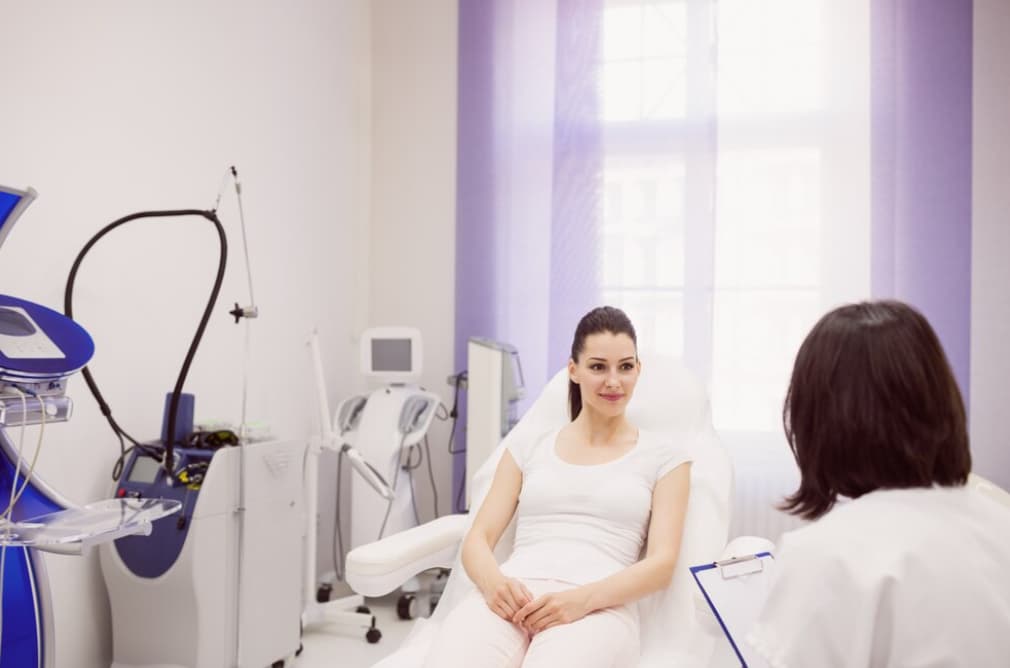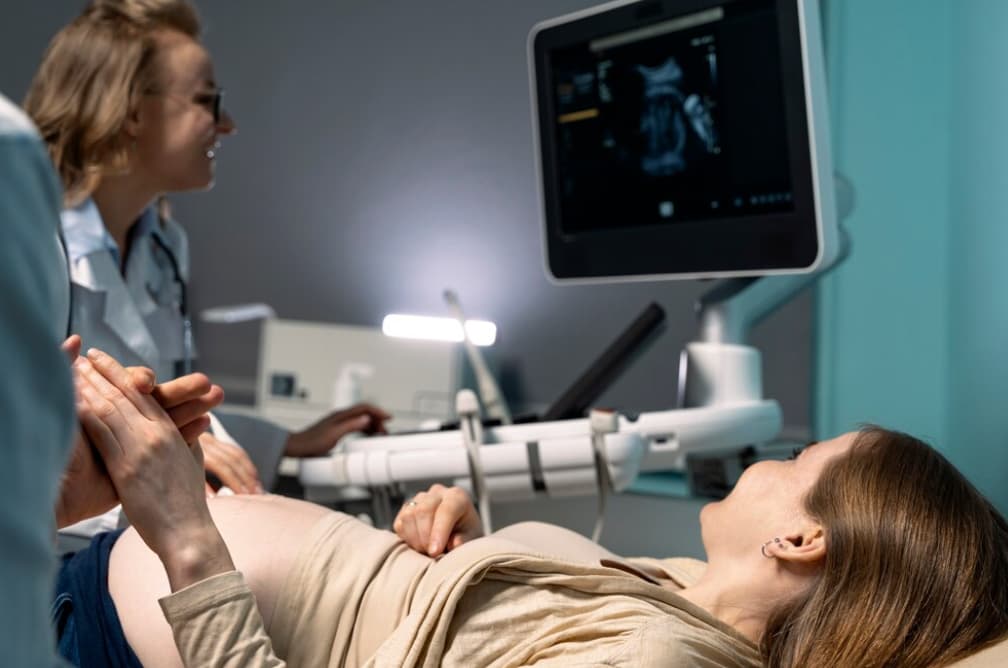Becoming an Obstetrics and Gynecology Physician Assistant
Obstetrics and Gynecology Physician Assistants (OB/GYN PAs) are pivotal in healthcare teams. They have multifaceted roles in both inpatient and outpatient OB/GYN settings. These professionals ensure continuity of care and contribute to patient satisfaction through their comprehensive patient-focused approach. Their extensive academic preparation and clinical training enable them to execute numerous diagnostic and therapeutic procedures.
OB/GYN PAs are competent to evaluate and manage prevalent gynecological conditions. They are also gifted educators, providing patient counseling on a wide array of OB/GYN matters, as recognized by the American Academy of Physician Assistants (AAPA) and the Association of Physician Assistants in Obstetrics and Gynecology. The responsibilities of these healthcare practitioners extend to managing women’s health from adolescence onwards. The extent of their responsibilities can differ significantly based on their work environment.
In exploring the dynamic field of Obstetrics and Gynecology (OBGYN), it’s crucial to understand the practical aspects such as salary, particularly in regions like Florida, where the compensation landscape for physician assistants can offer valuable insights.
Roles of PAs in Outpatient Obstetrics and Gynecology Settings
As per APA census data, 88% of OB/GYN PAs work in outpatient settings, and 33% coordinate inpatient care. In outpatient settings, these PAs conduct obstetrics and gynecology examinations and manage common gynecological conditions.
OB/GYN PAs offer services in various outpatient settings such as:
- OB/GYN practices;
- Family practices;
- General internal medicine practices;
- Family planning centers;
- Urban and rural community health clinics;
- Urgent care centers;
- Multispecialty physician groups.
Though the nature of patient encounters can vary, most usually comprise:
- Performing annual pap/pelvic and breast exams;
- Addressing gynecological complaints;
- Managing menopause-related issues;
- Providing family planning services;
- Delivering pre-natal and post-natal care.
These professionals often participate in teams evaluating and treating infertility and provide prenatal, intrapartum, and postpartum care. Patient counseling spans a range of subjects, including contraception, breast self-examination, prenatal care, childbirth, postnatal care, and lactation. They also frequently deal with conditions such as breast masses, incontinence, infertility, ovarian cysts, endometriosis, and uterine fibroids.
Roles of PAs in Inpatient Obstetrics and Gynecology Settings

Inpatient OB/GYN PAs typically work under one of two models. They may be employed outside hospitals with privileges to provide inpatient care or work within hospitals’ OB/GYN units.
Hospital-based PAs may conduct numerous procedures, including amniotomies, internal monitor placements, fetal monitor strip interpretations, ultrasounds, colposcopies, cryotherapy, intrauterine device insertion and removal, vulvar and endometrial biopsies, and loop excision electrocoagulation procedures.
Professionals in private healthcare settings who have access to hospital facilities often contribute to childbirth and surgical procedures, including C-sections, removal of the uterus, and contraceptive surgeries following childbirth. In collaboration with specialists in the field of gynecological cancer, they may support in complex surgeries such as extensive uterus removal, complete external genitalia removal, and the excision of growths within the pelvic region. These experts are responsible for overseeing the recovery process of patients, managing laboratory tests, and offering educational support both before and after surgery.
Physician Assistants (PAs) specializing in obstetrics and gynecology play a pivotal role in bridging the gap between patients and healthcare teams, ensuring a seamless flow of care. They are instrumental in fostering clear and effective communication among surgeons, patients, and their families, enhancing the overall healthcare experience.
OB/GYN PA Academic & Certification Pathway
Becoming an Obstetrics/Gynecology Physician Assistant (OB/GYN PA) demands a meticulous and well-organized path toward education and accreditation. Prospective PAs must embark on an intensive educational journey, typically spanning 26 months, within an accredited physician assistant program. This is followed by the successful completion of the Physician Assistant National Certifying Examination (PANCE), a pivotal step towards certification. Furthermore, securing a state-specific license is imperative for practicing as a certified physician assistant.
The educational phase encompasses approximately 2,000 clinical hours, with mandatory rotations in obstetrics and gynecology. Aspiring specialists in OB/GYN often opt for a specialized post-graduate residency program, which provides focused training in this discipline. This year-long, full-time residency offers invaluable hands-on experience under the mentorship of seasoned OB/GYN physicians across diverse healthcare settings. The curriculum is meticulously designed to encompass a wide array of services, including antepartum, intrapartum, and postpartum care, along with the management of gynecological malignancies.
Certification Specialties for OB/GYN PAs
The National Commission on Certification of Physician Assistants (NCCPA) administers the Certificate of Added Qualifications (CAQ) program, enabling Physician Assistants (PAs) to specialize in their chosen fields. While there isn’t a specific CAQ in obstetrics/gynecology, PAs can opt for CAQs in hospital medicine or emergency medicine instead. Eligibility for a CAQ necessitates holding a PA-C designation, possessing an unrestricted license to practice as a physician assistant in at least one U.S jurisdiction, passing a specialty exam, and meeting the following criteria:
- Accumulating a minimum of two years of relevant experience;
- Completing Category I specialty Continuing Medical Education (CME);
- Demonstrating sufficient proficiency in procedures and patient case experience relevant to their chosen specialty.
Continuous Learning for OB/GYN PAs

Continuous professional development is a cornerstone for success in any healthcare profession, including OB/GYN PAs. Maintaining up-to-date knowledge is critical to provide the best care to patients and to keep pace with the ever-evolving medical landscape. Ongoing education allows PAs to enhance their skills, deepen their understanding of the field, and stay abreast of the latest research and clinical guidelines. Regular participation in workshops, seminars, and professional networks can aid in this continuous learning journey.
The Impact of PAs on Women’s Health
OB/GYN PAs play a significant role in women’s health. They are part of a deeply human-centered profession where they can influence the health and well-being of women in all stages of life. Their significant contribution helps bridge the gap in women’s healthcare, especially in underserved areas. The unique perspectives and skills they bring to the table are integral to a holistic and patient-centered approach to women’s healthcare.
Conclusion
OB/GYN PAs are indispensable in modern healthcare. They contribute significantly to delivering comprehensive care and improving patient satisfaction. By assisting in various procedures and offering patient education, they not only improve women’s health outcomes but also empower patients with knowledge. Like all healthcare professionals, their goal is to enhance the quality of care and patient experience. Their commitment to continuous learning and adapting to evolving healthcare scenarios ensures they are competent to face the challenges and excitements in the dynamic field of Obstetrics and Gynecology.
The role of an Obstetrics and Gynecology Physician Assistant is undeniably vital within our healthcare system, serving a multifaceted function across a range of settings. As dedicated, patient-centric healthcare practitioners, they deal with a vast spectrum of women’s health issues, from adolescence to menopause and beyond. Their intensive academic preparation and clinical training allow them to contribute substantially to diagnostic and therapeutic procedures. Pursuing a career as an OB/GYN PA not only promises professional fulfillment but also offers an opportunity to make a significant impact on the health and wellness of women across various life stages.




